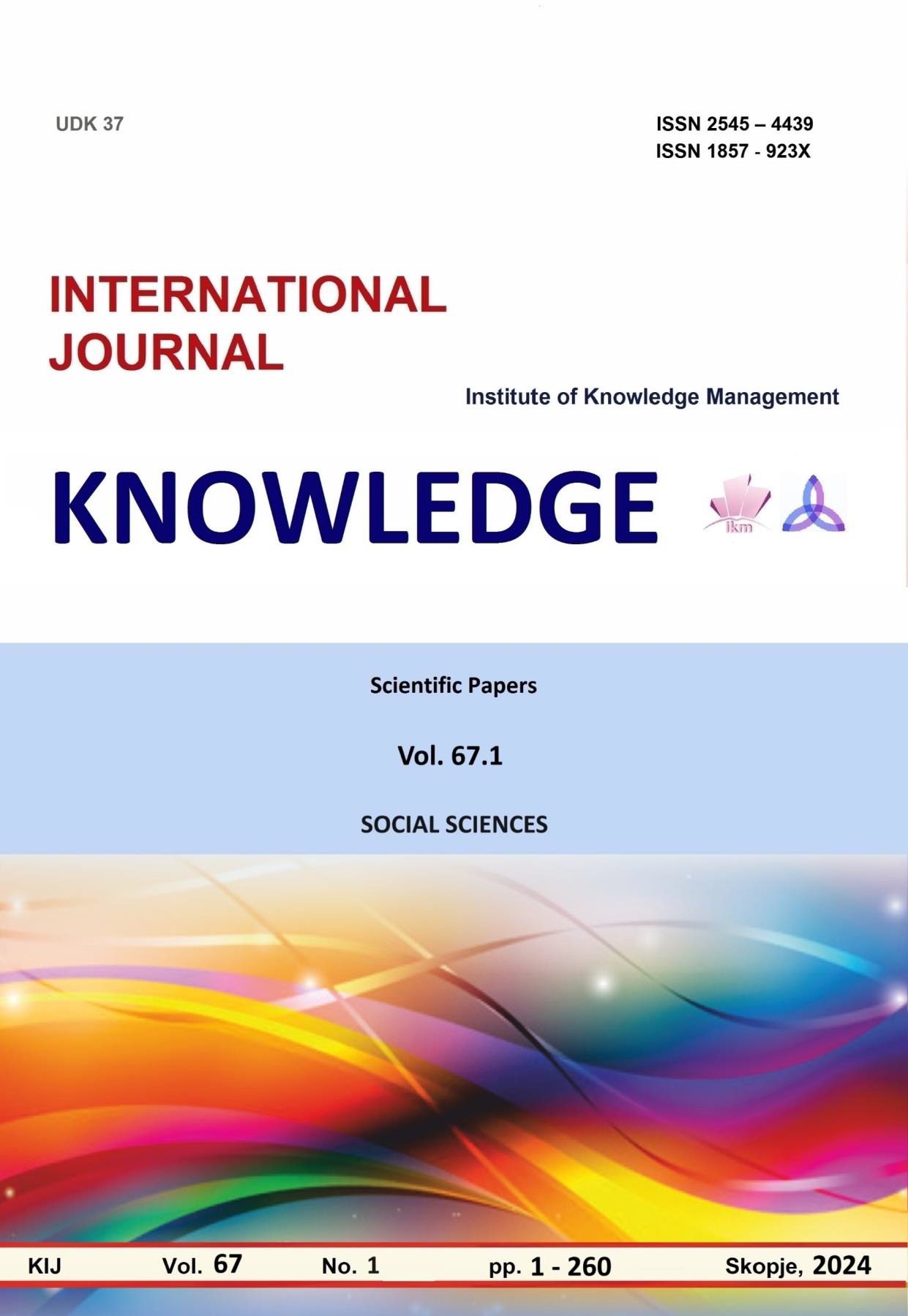AUTOETHNOGRAPHY AND WORKPLACE MOBBING IN WESTERN BALKAN COUNTRIES
AUTOETHNOGRAPHY AND WORKPLACE MOBBING IN WESTERN BALKAN COUNTRIES
Author(s): Silvana Jovcheska, Lazar Arsovski, Zorica SiljanovskaSubject(s): Social Sciences, Education
Published by: Scientific Institute of Management and Knowledge
Keywords: mobbing;workplace harassment;management;organizational culture;employee protection
Summary/Abstract: Harassment and mobbing in the workplace have become increasingly prominent issues at the global level. The motivation and productivity of employees, on the one hand, and the experience of deprivation of basic labor rights and freedoms, on the other—referred to as mobbing—are being more frequently linked. According to Leymann (1990), “Mental terror, or mobbing, refers to hostile and unethical communication that is systematically directed by one or more persons, primarily towards an individual. These acts occur frequently (almost daily) and over an extended period (at least six months), and due to this frequency and duration, they result in significant psychological, psychosomatic, and social distress” (Leymann, 1990). Inevitably, the question arises as to why this topic is being discussed more frequently now. Is it a new development in labor relations within organizations in the countries of the Western Balkans, or has this phenomenon been present for years or even centuries? Additionally, how openly has it been addressed in the past? The Western Balkan countries, with their long-standing status as nations in transition, naturally developed unique job structures and positions that carry specific characteristics. While under communism, there was little opportunity to observe the dynamics between “superiors” and “subordinate” employees, today, we see a different reality—one in which harassment and mobbing in the workplace are both publicly “expressed” and “concealed.” The key questions are whether the conditions within work organizations have evolved, and whether managers have made progress in implementing modern management models that emphasize transparency and addressing inappropriate workplace conditions. Or, alternatively, does the culture or ethnicity of the individual facing harassment and mobbing inhibit them from resisting managers and colleagues who violate their legally guaranteed rights? For the purposes of this paper, research was conducted on the relationship between the personal experiences of individuals who are victims of mobbing, their personal and cultural identities, and the ways in which they address—or fail to address—the issue. Do employees from rural cultures in the Western Balkans develop the resilience and capacity to confront workplace harassment independently, adopting a so-called “African culture,” where subordinate and junior members of a community, in this case the workplace, are expected to comply with the demands and wishes of superiors at all costs? Or has the reality of organizations in the Western Balkans in the 21st century changed, showing progress in terms of public discourse, reporting, and the elimination of all forms of violence, harassment, and mobbing? This paper emphasizes the importance of educating employees on the various forms of mobbing, how to identify and report them, and ensuring full protection within and outside work organizations. Through direct surveys conducted with employees who have experienced mobbing, a model outlining the stages of the mobbing process will be developed. Additionally, recommendations and conceptual solutions will be provided to help employees recognize mobbing, encourage reporting, and protect themselves from its negative consequences.
Journal: Knowledge - International Journal
- Issue Year: 67/2024
- Issue No: 1
- Page Range: 17-21
- Page Count: 5
- Language: English

